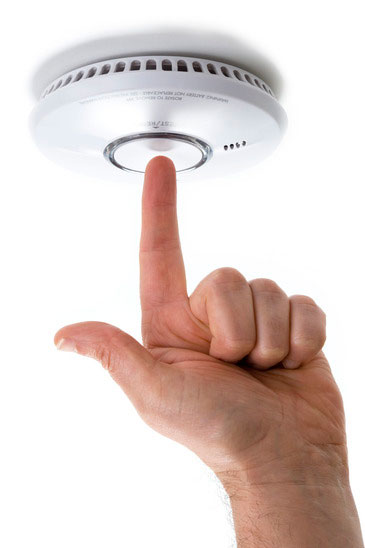Furniture and furnishings supplied in rental accommodation must comply with The Furniture and Furnishings (Fire) (Safety) Regulations 1988 (as amended).
Some materials used to fill or cover furniture, particularly older and second-hand furniture, may be a fire risk and often produces poisonous gases when burning, such as cyanide or carbon monoxide.
There are severe penalties for non-compliance.
If you let your residential property furnished you must ensure that certain types of furniture and furnishings provided meet the current safety regulations – failure to comply with the regulations is a criminal offence and may result in:
- A fine of £5,000 per item not complying
- Six month’s imprisonment
- Possible manslaughter charges in the event of death
- The Tenant may also sue you for civil damages
- Your property insurance may be invalidated
These regulations are enforced by local Trading Standards Officers
Manage your property well and the risks to you as landlord or agent are minimal, but manage it badly and your risks are quite high.
You have two choices: Let your property unfurnished or make sure all your furniture and furnishings meet the regulations. They must carry an appropriate permanent label at point of sale.
- Keep all purchase receipts – be extra careful if buying used furniture.
- It is safest to buy new from a reputable retailer.
- It is an offence for retailers to sell no-complying items.
- If in doubt, consult your local Trading Standards Office.
What do the Regulations Say?
As from 1st January 1997 all furniture in tenanted residential property must comply with the 1993 amendments to the Furniture and Furnishings (Fire) (Safety) Regulations 1988 which extends the scope of the Consumer Protection Act 1987 (CPA). This covers the supplying (hiring or lending) of specified goods (upholstered furniture and certain furnishings) “in the course of business”.
A landlord letting her own home over an extended period, perhaps to different tenants, would be deemed to be “letting in the course of business” and would need to comply. We would therefore strongly recommend that anyone, regardless of whether they see themselves as running a business or not, should make absolutely sure they are complying with these regulations.
Prescribed Items
The regulations apply to:
- Armchairs, three piece suites, sofas, sofa beds, futons and other convertible furniture.
- Beds, Bed bases and headboards, mattresses, divans and pillows.
- Nursery furniture
- Garden furniture which could be used indoors
- Loose, stretch and fitted covers for furniture, scatter cushions, seat pads and pillows.
Excluded Items
- The regulations do not currently apply to:
- Antique furniture or furniture manufactured before 1950
- Bedclothes and duvets
- Loose mattress covers
- Pillowcases
- Sleeping bags
- Curtains
- Carpets
Compliance
Furniture which complies carries a manufacturer’s label which must be permanent and non-detachable.
All upholstered items must have fire resistant filling material.
All upholstered items must pass the “match resistance test” as prescribed.
All upholstered items must also pass the “cigarette test” as prescribed.
Bed bases and mattresses are not required to bear a permanent label but compliance will be indicated if the item has a label stating that it meets BS7177
Due Diligence – What Landlords Should do!
In the event of a tenant complaint or an incident the defence of “due diligence” may be accepted where it can be shown that the landlord or agent took all reasonable steps to avoid committing an offence – you will need documentary evidence of this.
A private owner letting a single dwelling (his or her own home – not in the course of business) may in theory have some argument for defence, whereas an agent acting on his behalf will not. However, an agent merely introducing a tenant and not becoming involved in the inventory or management of the tenancy my well be exempt from liability

